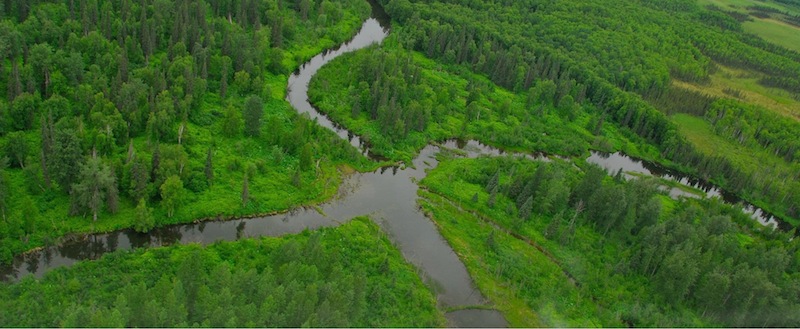The Regional Ecosystem Health program recognized that human well-being is dependent on the ecosystem goods and services that nature provides. It addressed issues at the interface of the built environment and the natural world and illuminated the links between healthy ecosystems, open space, working lands, and vibrant human communities. It sought to advance innovations in regional planning and management of land and water to improve cross-sector coordination and ensured that policy and financial decisions fully accounted for the value we receive from nature. And, it supported efforts, based on sound science, to restore and protect nature as the basic infrastructure supporting urban resilience and sustainability.
Ecosystem goods and services include more than the raw materials on which our economies and communities are built. They also include the fundamental life support services provided “for free” by nature: purification of air, regulation of water flows, detoxification and decomposition of wastes, regeneration of soil fertility, pollination of food crops, and production and maintenance of biodiversity.
The Regional Ecosystem Health program recognized that reciprocal financial agreements, market mechanisms, taxes, fees, subsidies, and public education can complement regulation as policy tools. It acknowledged climate change as a major additional stress on ecosystems, and it overlaped substantially and intentionally with the Foundation’s other programs.
Major areas of program engagement included applied urban research and tool development, conservation finance and environmental economics, and ecosystem defense and ecological restoration.
Applied Urban Research and Tool Development
- Foster innovations that ensure efficient use of water resources, wood products, and agricultural foodstuffs to reduce stress on working lands and natural systems.
- Design and test potential new regional planning and governance mechanisms that more effectively address systemic barriers to achieving ecosystem health and the demands of an ecological economy.
- Demonstrate how urban sustainability and human well-being rely on underlying ecosystem health.
Conservation Finance and Environmental Economics
- Ensure that financial decisions and policies affecting the management of urban, agricultural, forest, and open space lands properly account for all ecosystem service values.
- Develop conservation finance mechanisms, metrics, and other needed tools to encourage protection and restoration of ecosystem service values.
Ecosystem Defense and Ecological Restoration
- Retain remaining natural areas and open space within or near major urban regions to prevent further loss of landscape resilience and ecosystem service benefits.
- Mitigate unavoidable direct harm to natural ecosystems and working lands to maintain their ability to provide ecosystem services supporting urban sustainability.
- Restore or enhance the provision of ecosystem services in areas where past activities harmed natural capital and ecological processes.
- Support actions to improve forest and agricultural practices and prevent conversion of working lands to urban uses.

